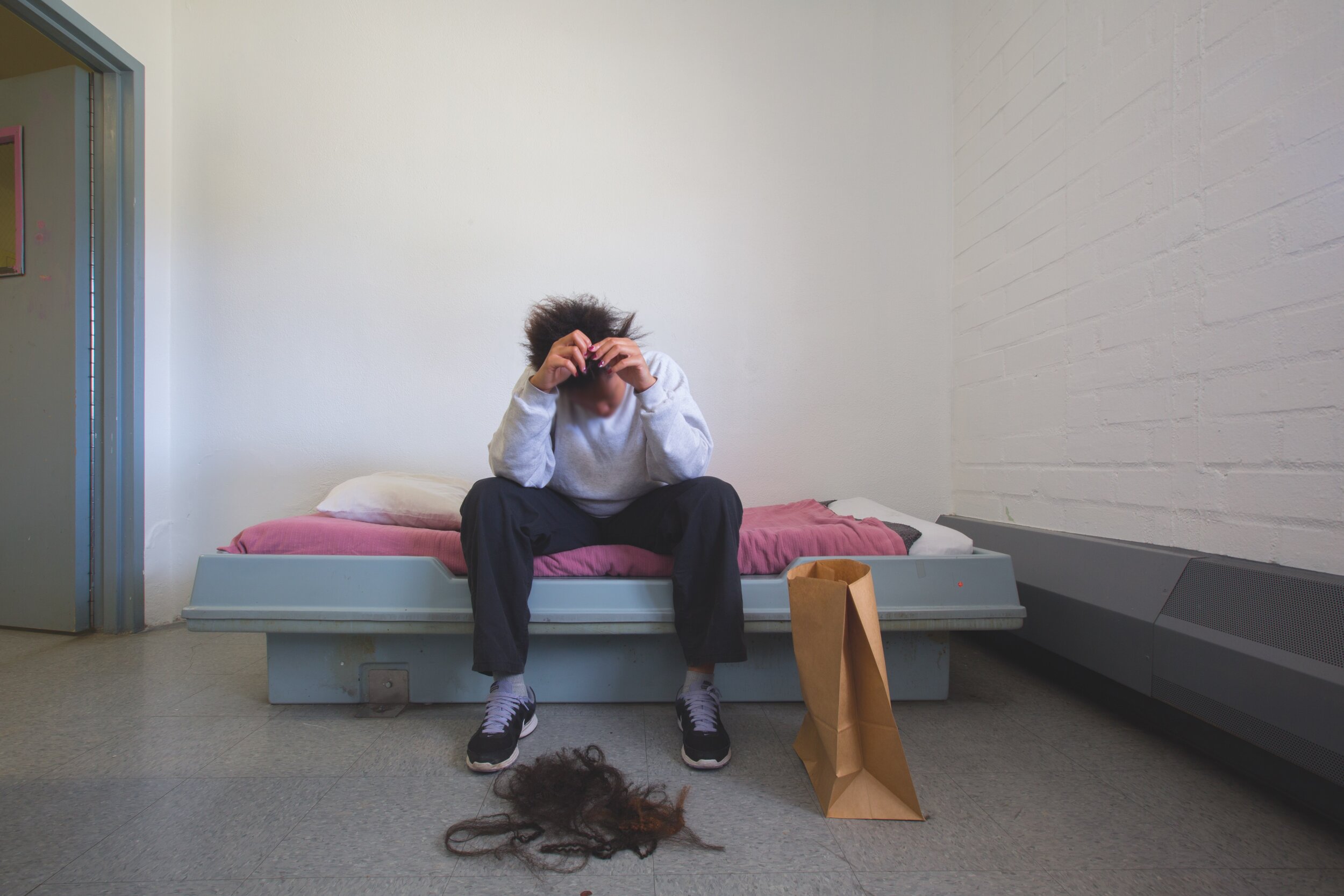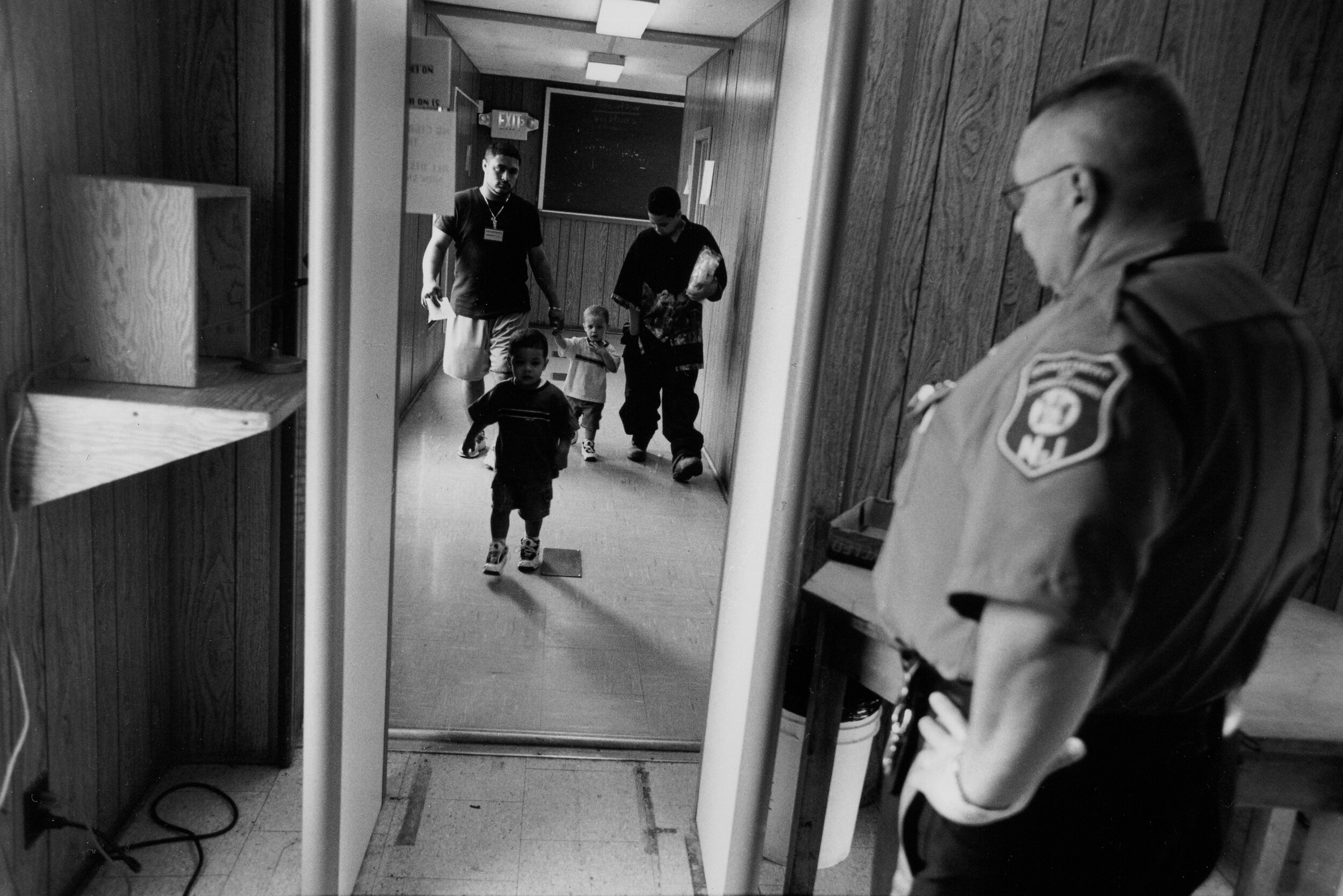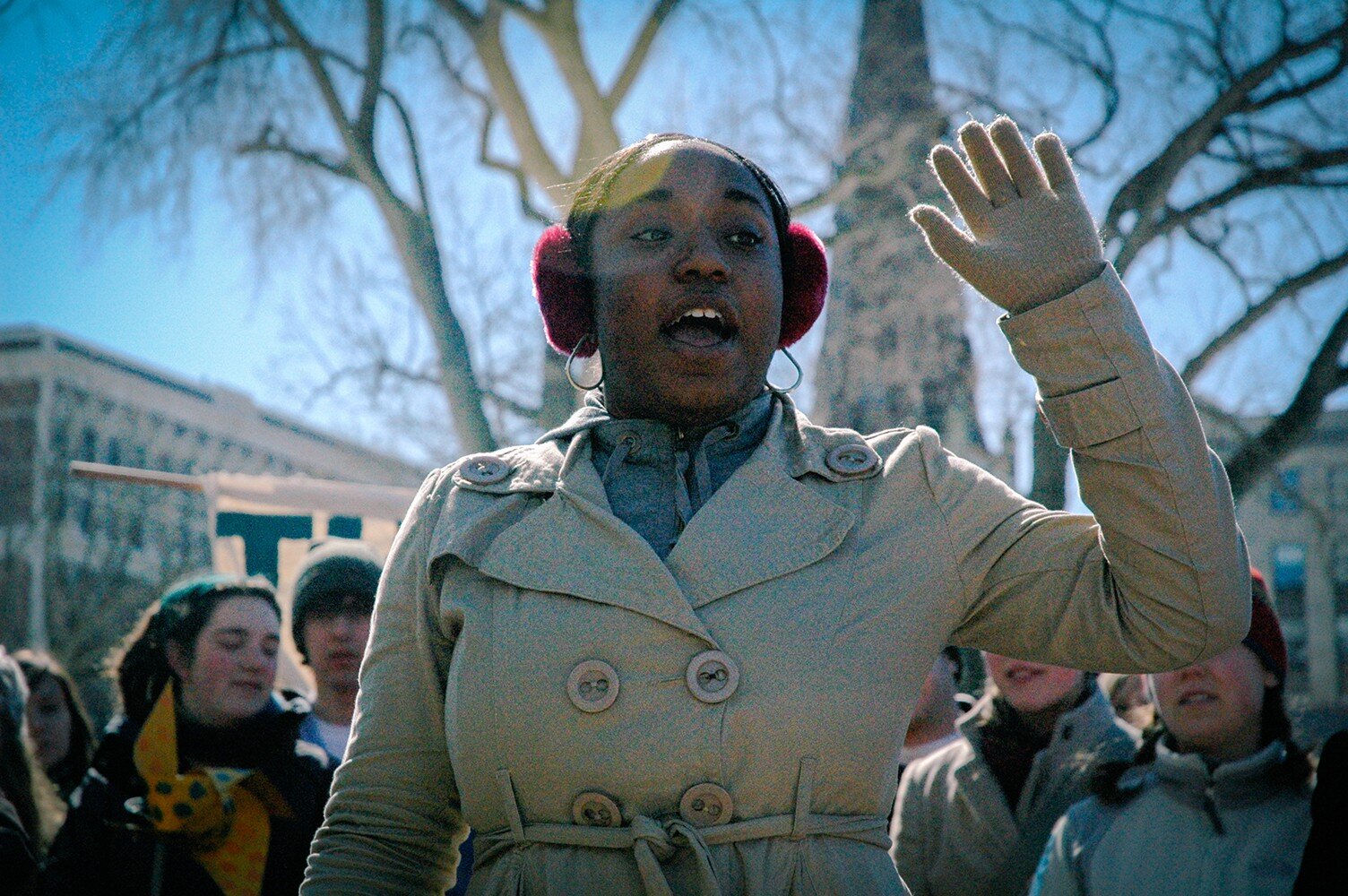A scene from the documentary, Priced Out, about the gentrification of the North Portland area. Image courtesy of filmmaker Cornelius Swart.
WHAT A DOLLAR COST
By Jarell Lambert & Walidah Imarisha
We live in a world where money has more value than life itself.
Money is a fight. A struggle. Driven by a hunger for more. It is rooted in darkness, ignorance, injustice, corruption, spiritual emptiness and misguided nations. As a Black man, I see what money does to our communities. We get full ride scholarships to prisons or drafted into professional sports leagues where we are deluded by the promise of fame and fortune. Society will give me a few dollars, but tells me how I need to feel, how I need to act, and demands what I say and do.
A lack of money is the biggest form of control that is inflicted upon us. If we don’t pay attention, we’ll continue to pay the price.
I was raised on the north side of Portland, Oregon (1) by a devout, strong, and persistent woman who, like so many young black Mothers, wanted nothing more than to provide a better life for her children. North Portland had life and love. But it was also home to Black folk who were misused and abused in a war and left to fend for themselves. A place riddled with guns and gangs so we could offend and defend ourselves against each other. No one had fathers at home, the system had them.
(1) In 1844, the Oregon territory passed the Black Exclusion Law (the first of several). Oregon was the only state in the union admitted with a racial exclusion clause in its constitution. Even though the law itself was repealed in 1926, the language of the Black Exclusion Law was in Oregon’s constitution until 2001.This is the foundation of Oregon specifically, and the entirety of the Northwest; it is rooted in white supremacy, and anti-Blackness.
We eventually moved to the southeast side of town where life seemed more fair. But in these suburban neighborhoods, as the only Black family for miles, you quickly start to see an even bigger divide (2). These homes had both parents, bought their kids brand new cars at 16, went on vacations all the time and ate completely different food. I would get teased for the smell of fried fish on my clothes from dinner the night before. Being one of the only black kids around was a heavy weight to carry.
(2) Portland’s small Black community was “redlined” into the Albina neighborhood in North Portland. Redlining refers to a process where red lines are drawn around a small (unusually undesirable) area on a city’s map and within those red lines are the only place Black and sometimes other people of color are allowed to buy or rent.
It was obvious to a kid that his white friends had more money than the people in my old neighborhoods, because every time we would go back, no one had any of the same toys and games. And the air smelled sour in the north. Like the smell of stale blood. This is where the devaluation of my people began.
This, in turn, led to a personal struggle to define myself. Back and forth from jail and eventually leading to a small stint in prison (although there really is no such thing as “small stint” when it comes to prison, for what gets you there and what follows is a life long struggle). Being in captivity is a psychological depression. We are told how to feel, how to act, what to say, and what to do. Captivity, like money, impacts entire communities and rips families apart.
Then before I know it, I’m back on the streets a different man. I was angrier this time, tougher because I was armed with more tools for destruction. Outside prison I couldn’t help but constantly feel like someone was chasing me. So, I acted that way. My behavior escalated, I got a lil more extreme in my moves and took more unnecessary risks. I quickly found myself back in a courtroom. My court-appointed attorney convinced me that six years was a good deal for my crime, where no one was hurt, and nothing was taken. With my options strictly limited, I took “the deal.”
Society keeps black men in jail because we don’t have access to the resources to support ourselves or our community. Most of the crimes we commit are for capital gain. When the law catches up to us, some of their capital gain comes from keeping us incarcerated. There were about 30 people on the docket that day in court, and 28 of us met a heavy sentence. The other two inmates went home. One because of an absent witness, and the other because of money. Money for a paid lawyer, and money to be bailed out. Money gives you the only chance at some type of freedom. Mothers put up whole entire houses to bail us out and get us lawyers. Money pulls from both sides. It wasn’t long after this that I developed a thirst for understanding.
Why were we in so much pain?
If you can quiet the noise you will actually start to see some goodness behind those walls. I read and fueled my body and soul with understanding. I loved every good example shown to me. I learned not to move off emotion, for emotion is what helps gettin you here in the first place. These were some of the most conscious moments of my life, for this is where my consciousness began.
I came home from prison this time with a feeling I can only compare to being back in that courtroom—helpless. Helpless because our entire community is snatched up and moved to a place where white people decide where we are fit to live. Through studies and conversations with brothas who were awake and like-minded, we discussed gentrification (3) which was hitting north Portland really hard, and this is what I was seeing. They were only conversations before, but now I’m seeing it for real. A place that used to be filled with my people. Their family, their pain, their joy. Their businesses were completely uprooted and either taken away or bought from them. The same people my mother had moved us to had now taken over the neighborhoods we moved away from.
(3) Gentrification is the process of displacing and erasing often poor communities (usually Black and brown) with wealthier whiter communities. It is a multi-decade, intentional process where private interests work in collusion with government. From 1990 to 1999, the home prices in Albina increased by as much as 150-200 per cent. At the end of that same 10-year period, Black folks owned 38% fewer homes in Albina, while white people owned 43% more than they had a decade before.
We have to understand money. Whatever is not understood will become an enemy. And the lack of knowledge about money has always worked against us. I think of it as cost and control: money has us controlled to the point where the law knows exactly what we will and can do before we do it. Meaning, there is no act or crime I can commit without them having a name and the exact sentence I will get for it. And through any sentence, there is always a financial cost. That is control.
It’s important to understand I am one man, one story, one life, amongst the many brothers and sisters who strive daily for peace, for love and to be treated fairly. We are abused, moved and used against our own will (4). We are targeted, stereotyped, labeled, and killed like it’s some kind of sport. We are looked at like we still have shackles on our hands and feet—do we!?
(4) There is no longer any neighborhood in Portland that has a Black majority population. In fact, the 2015 State of Housing in Portland report found that if you are Black, indigenous, or Latino/a, you can on average no longer afford to live in Portland.
At the same time our culture is sought after, our physical dominance is celebrated in history and still thrives to this day. We need leaders to take us to the next level, we need more than the sun to bring light into our lives. Fight to change our ignorance to knowledge from immorality, injustice and unethical behavior to a society based on love, altruism, passion for justice and prosperity. We need clear social communication. That pain I felt in them cells gave me something money cannot afford, the ability for me to love you for the sake of love and for the sake of all of us fighting against this system. Hear me don’t fear me… (5)
(5) In her foundational article, Bleeding Albina, Karen Gibson refers to a “continuous thread of resistance” running through the history of the Black community in Portland. Despite multiple displacements, destruction, and exploitation, the Black community in Portland has not only survived, it has rebuilt again and again, creating networks of support and refusing to be erased.
Jarell Lambert is now released from prison and lives near Portland, Oregon. He continues to be heavily involved in the fight for justice.
Walidah Imarisha is historian, reporter by (w)right, rebel by reason. She is an educator, writer, public scholar and spoken word artist based in Portland, OR. To learn more about Walidah, her work, mission and upcoming events visit www.walidah.com.




